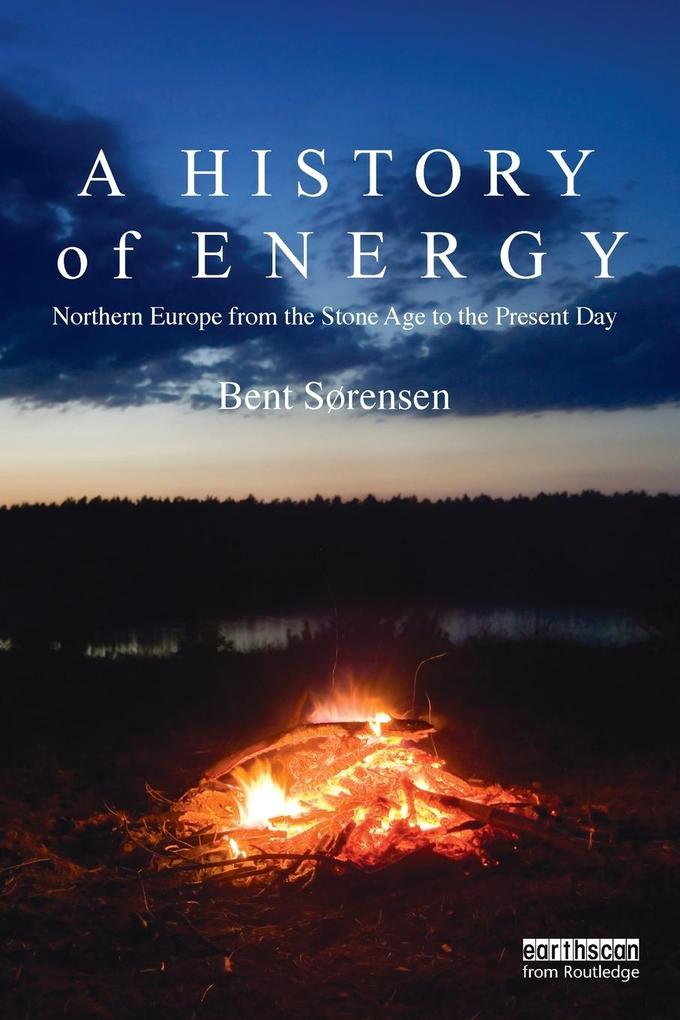
Zustellung: Mi, 11.06. - Sa, 14.06.
Versand in 6 Tagen
VersandkostenfreiBestellen & in Filiale abholen:
In this seminal book, Bent Sørensen views human society as driven by the quest for, and control of, energy. From allowing our prehistoric ancestors to survive harsh northern European winters to more recent global energy security and climate concerns, the control and effective harnessing of energy sources has played a central role in human development. Based on detailed studies of northern Europe - and in particular the case of Denmark - the focus moves from the stone age, through the development of agriculture and trade, migration and exploration, medieval society and the renaissance, into industrial times and present-day debates around the transition to low-carbon forms of energy supply.
In this seminal book, Bent Sø rensen views human society as driven by the quest for, and control of, energy. From allowing our prehistoric ancestors to survive harsh northern European winters to more recent global energy security and climate concerns, the control and effective harnessing of energy sources has played a central role in human development. Using the written and archaeological record and, from earlier times, inferring the energy needs of humans through modeling of climatological conditions and other indirect parameters, Sø rensen unwraps this previously little-explored field.
Based on detailed studies of northern Europe - and in particular the case of Denmark - the focus moves from the stone age, through the development of agriculture and trade, migration and exploration, medieval society and the renaissance, into industrial times and present-day debates around the transition to low-carbon forms of energy supply.
This riveting examination of a nascent field of study provides a new perspective for historians and those wishing to gain a deeper understanding of the background to present-day energy debates.
Based on detailed studies of northern Europe - and in particular the case of Denmark - the focus moves from the stone age, through the development of agriculture and trade, migration and exploration, medieval society and the renaissance, into industrial times and present-day debates around the transition to low-carbon forms of energy supply.
This riveting examination of a nascent field of study provides a new perspective for historians and those wishing to gain a deeper understanding of the background to present-day energy debates.
Inhaltsverzeichnis
1. Introduction: Climate Background and Eem Visitors 2. Weichselian Stone Age: Coping with the Cold North 3. Late Stone Age: More Settlements and Transitions 4. Agriculture, Trade and Metals 5. Migration and Exploration by Land and Sea 6. Medieval Society: Church Building and a Little Dissent 7. Renaissance: The Missed Opportunities 8. Aftermath: Ecological Disasters and Counter-measures 9. Industrialisation and Infrastructure Development 10. Electricity: Wind or Coal? 11. Oil, Nuclear (no thanks!) and Natural Gas 12. Conflicting Directions: Renewable Energy and Decentralisation in a World of Globalisation and Growing Consumption. Index
Produktdetails
Erscheinungsdatum
09. November 2011
Sprache
englisch
Seitenanzahl
552
Autor/Autorin
Bent Sorensen
Verlag/Hersteller
Produktart
kartoniert
Gewicht
828 g
Größe (L/B/H)
234/156/29 mm
ISBN
9781849713856
Entdecken Sie mehr
Bewertungen
0 Bewertungen
Es wurden noch keine Bewertungen abgegeben. Schreiben Sie die erste Bewertung zu "A History of Energy" und helfen Sie damit anderen bei der Kaufentscheidung.








